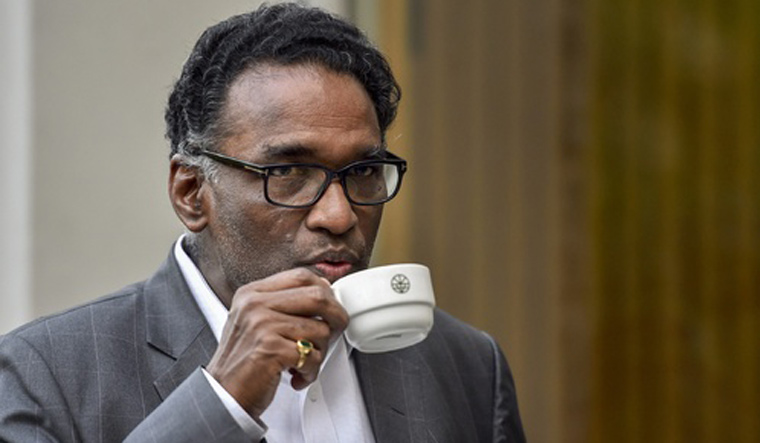Supreme Court judge Justice J. Chelameswar on Monday called for greater transparency in the functioning of the collegium with regard to the process of appointment of judges to higher judiciary.
“What exactly goes on in the collegium in the nature of assessment while either accepting or rejecting a name requires to be a little more transparent,” said Chelameswar, who has had run-ins with more than one Chief Justice of India on making the functioning of the collegium more transparent.
The Supreme Court judge aired his views while participating in a panel discussion that followed the release of the book 'Appointment of Judges to the Supreme Court of India:Transparency, Accountability, and Independence' edited by Arghya Sengupta and Ritwika Sharma.
The second senior-most judge of the apex court, who is due to retire in June this year, is known as somewhat of a rebel on account of his insistence that records of the proceedings of the collegium with regard to assessment of judges be maintained. “I have been in a bit of controversy with regard to this,” he said.
“An assessment of the performance of a high court judge (while being considered for elevation to the Supreme Court), is hardly done,” he said, adding that generally, assessments are made on the basis of impressions.
Chelameswar was the lone dissenting voice that ruled in favour of the National Judicial Appointments Commission, which would have broad-based the process for selection of judges and given the executive a say in it, when the Supreme Court scrapped the law passed for creation of the panel.
He, however, said some steps have been taken by the collegium recently to increase transparency in the process of appointments. One of the steps, he said, was the decision to have an interaction with the candidates being considered for appointment to the higher judiciary. “It is not the ultimate step, but certainly a step towards transparency,” he said.
On what reforms are needed to be made in the functioning of the Supreme Court, Chelameswar said one of the problems faced by it is the unwritten rule that there has to be a state-wise representation of judges. This, he said, started once the sanctioned strength of the Supreme Court went up to 31 judges. “Every state believes it is entitled for a seat in the Supreme Court,” he said.
The other problem, he said, is the policy of transfer of chief justices of high courts. Chelameswar said no political party has shown the will, once it is in power in Delhi, to change it.
Flowing from the second judges' case, which gave rise to the concept of collegium, is the thought that every High Court chief justice has a legitimate expectation to be considered for elevation to the Supreme Court. However, Chelameswar pointed out that at one particular point in time, a particular high court had four chief justices simultaneously.
He questioned the logic behind transfer of chief justices of high courts, saying it was based on the belief that an outsider chief justice would be unaffected by local influences.
Going by that logic, he said, the country should have a system of outsider chief ministers. "Why don't we have transferred chief ministers? If this is done, damage to the society will be minimised.”
Chelameswar served as chief justice of two high courts – Gauhati and Kerala. The delay in his elevation to the Supreme Court is said to have cost him the honour of becoming the Chief Justice of India.


